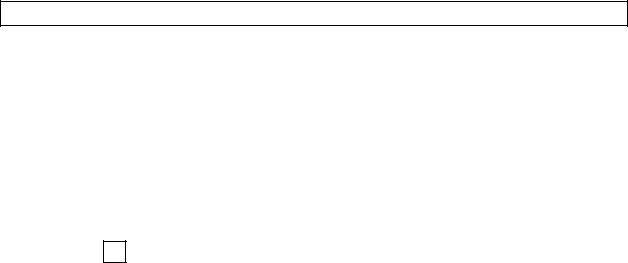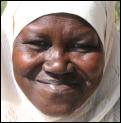
educational_sphere
.pdfCan you send me a letter of acceptance?
How can I pay the course fee?
Can I get a refund if I have to cancel?
I have transferred the money, but the status of my application is still 'not paid'
CREDITS
Do I get credits for the course?
What is the equivalent of one ECTS credit?
LANGUAGES
Do I need to speak Dutch?
Do I need to take a TOEFL test?
HOUSING AND STAY
Where do I stay?
Are all apartments in the centre?
Will all students that attend the same course be housed together?
Is housing included in the course fee?
Does the housing include kitchens and bathrooms?
When can I move into my room and until when can I stay?
When can I collect my keys?
What should I do if I arrive when the key pick-up desk is already closed?
SOCIAL PROGRAMME
Is there a social program?
Are there separate programs for all courses?
APPLICATIONS Q:
A: You will find the application form under the button "Application" at this website, and at the specific course page. For most courses online application and payment is available.
Q:
A: This varies from course to course. Deadlines are mentioned on each course page. If you apply after the given deadline, sometimes we will be able to accept you. But the course can be fully booked. In that case you are too late. If you want to be sure, please contact the contact person you find under "information and registration".
Q:
A: This differs from course to course. Sometimes you qualify for a scholarship because your university has an agreement with Utrecht University, sometimes a foundation sponsors specific target groups, and in other cases the course leader gives a waiver to a few outstanding students. It is clearly indicated at the site, under "courses".
Q:
73
A: Utrecht Summer School runs at least four exchange programs with Spain, Italy, Portugal and France. These courses are meant for Dutch students, especially for those with a major study in the relevant language. Online application via this website usually starts in February. See this site.
Q:
A: Please see the website of the Dutch Ministry of Foreign Affairs. Utrecht Summer School doesn't send letters of invitation to participants.
Q:
A: If you have been accepted for a course, it is still important to pay the course fee as soon as possible. Placement will be based on the order of payment (firstcome first-served). If you have paid, the course director will send you predeparture information a few weeks in advance of the course. In the meantime, we ask course directors to post their schedules on the course pages.
Q:
A: Yes, if you have paid the course fee, we can send you a Letter of Acceptance by (regular) mail. This can be useful (or even necessary) for your visa application procedure. We only send letters of acceptance to people who need to apply for a visa. Contact us to request a letter of acceptance.
Q:
A: After your application has been accepted by the course director, you will receive a payment request by e-mail. You can pay online by creditcard (Visa or MasterCard) or by wired transfer. To secure your place you should pay within 45 days after you have been accepted.
Q:
A: Costs will be owed in the event of cancellation or if the participant interrupts the course or ends it prematurely. These costs are as follows:
If the participant cancels more than 4 weeks before the start of the course, he/she will have to pay 15% of the full course fee (including housing).
If the participant cancels within one month before the start of the course, he/she will have to pay the full course fee.
Q:
A: International wire transfers may take up to 2 or 3 weeks to process internally. As soon as we have received your money, we will send you an email.
CREDITS Q:
A: In most of the cases we give credits. Those are ECTS credits, guaranteed by Utrecht University. It is up to your own university, however, to accept the credits in the context of your study. If you want to be sure on that, please contact your own study advisor. He or she can always contact our course leaders, in order to learn more about the content and the level of the course.
Q:
74
A: The European Credit Transfer System ECTS was developed by the Commission of the European Communities in order to provide common procedures to guarantee academic recognition of studies abroad. It provides a way of measuring and comparing learning achievements, and transferring them from one university to another. This is achieved through the use of a common ECTS credit unit and a common ECTS grading scale. The average course load for an academic year is 60 ECTS credits. That means that a week of serious studying is equivalent to more or less 1,5 ECTS.
LANGUAGES Q:
A: No, but it helps always if you made some effort before. We offer Dutch language courses for those who want to fully integrate into our culture!
Q:
A: No, we do not ask that. Be aware, however, that you have to be quite fluent in English. We expect you to be able to follow the lectures and to participate actively in the discussions.
HOUSING AND STAY Q:
A: All students will stay in one of the apartments for guest students. It is not possible to choose one of the locations yourself. For more information about the housing locations, see Housing.
Q:
A: They are never far away. Not more than 20 minutes biking from the university buildings. Most of them are closer.
Q:
A: We try to put students that are doing the same course as much as possible together. In order to manage that, we allocate rooms and apartments at the moment we know the right numbers. Therefore we guarantee lodging, but you will know quite late the exact place. At any rate you will be lodged together with other Summer school students.
Q:
A: In most of the courses: yes. Have a look under "Fee".
Q:
A: There is always at least a shared kitchen and a shared bathroom. Some rooms have even their own services. For more information about the housing locations, see Housing.
Q:
A: Housing is provided from the Saturday before the course starts, until 12 noon on the last Friday of the course. In case the course ends on a Thursday, your
75

lodging is still available until the Friday. Rooms are available for the course period only; extending the renting period is not possible.
Q:
A: The key pick-up desk is open on Saturday and Sunday from 12 PM to 4.30 PM.
Q:
A: You can stay in a hostel for one night and pick up your key the next day. You may also try to find a class mate to pick up your key.
SOCIAL PROGRAM Q:
A: Yes there is. See Social Program for more info.
Q:
A: No, we always try to make students from different countries and different disciplines meet. Therefore a joint social program is important, we think.
5b Role-play. Divide the group into two parts. The participants should have time to prepare for the Role-play in advance.
Let Students from group A be the representatives of the Summer School Board (they should know the answers).
Other students (Group B) can ask FAQ (Frequently Asked Questions). They should know them, not read from book.
6. SPEAKING
6a Find in the Internet some information about three other summer schools or courses abroad.
What are the key factors that might influence you choice: price, location, curriculum, teachers or fellow-students?
6b Role-play:
Student A and Student B are discussing advantages and disadvantages of these three summer courses.
7.WRITING 1 (informal letter)
7a Imagine that you are going to participate in one of the three above mentioned summer courses. Write your e-pal where and when you are going, describe the features of the course, what you are going to visit in the new place and so on. Keep in mind the rules of writing informal letters.
76

8.WRITING 2 (formal letter)
8a Scan the letter from the Director of the Centre for English Language Studies. Then choose the correct answer to each question.
1. What is the course about?
a)British culture and education
b)British politics and government
c)British life and institutions
2. What visits have been arranged? a) the Houses of Parliament and the
British Museum
Mr Manfred Lipmann
Maybackstr. 128
50670 Koln
Germany
Dear Mr. Lipmann,
b)the Scottish Parliament and Edinburgh Castle
c)the Tower of London and
Westminster Abbey
3. When does the course begin? a) 1 July b) 1 June с) 1 August 4. When does the course end?
a) 23 August b) 23 June c) 23 July
Centre for English Language Studies Airdale Castle
University of Helensburgh Scotland
Telephone: +44 (0) 206 548 3200 Email: info@helens.ac.uk
April 20 2009
Thank you for your letter enquiring about courses in British life and institutions. I am pleased to tell you that we will be offering such a course in our Summer School programme.
The course will be taught by Professor William Dawson, who has recently published a book entitled BritainToday,which has been highly praised by reviewers.
The course is suitable for anyone interested in British culture. It will cover a wide range of topics concerning British life, institutions and attitudes. These include topics such as The Press and Media, Education, the British Sense of Humour and the British Film Industry. There will be a number of guest speakers, and visits have been arranged to institutions such as the Scottish Parliament and Edinburgh Castle.
Finally, as you can see from the enclosed brochure, the course begins on June 1 and ends on June 23, with a farewell dinner.
We look forward to seeing you at the beginning of the course. If you need any further information, please do not hesitate to contact me.
Yours sincerely,
Jane Goodman
Director, English Language Summer School
77

8b Look through the “Letter conventions” below. Which of these statements are false? Correct them.
1.A formal letter should always have a date.
2.You put the address of the person you are writing to directly under your address.
3.You should begin a formal letter with Dear+first name + surname.
4.If you begin your letter with Dear+ name, you should finish it Yours faithfullynot Yours sincerely.
5.You should end a formal letter by signing it, then printing your name and position.
6.In formal letters, you can use everyday language and short forms such as I'mand we're.
9.LISTENING AND WRITING
9a Listen L8 to Manfred talking to his English friend, Louise.
He needs more information about the course. Note down the six points which he needs more information about.
9b Look again at the letter from Jane Goodman and underline the phrases used for beginning and ending the letter, and offering information.
9c Work with a partner to draft a reply to Jane Goodman and decide in which order you are going to cover the points you’ve noted, and make a paragraph plan.
9d Work with another pair and exchange your letters. Comment on the other pair's letter, paying attention to its organization, content, language and style.
9e Make a final draft of your letter.
10.READING AND WRITING
10a Read an email from an e-tutor to a student who is studying on a distance-learning course and choose the correct verbs.
Dear Julia
You have 1 made /done good progress this term with your work. 2Taking / Solving an online course doesn't seem to have caused you any difficulties. You 3got / studied good grades on both your essays even though you 4handed / took
78

the second in a week late, which affected your overall grade. Please 5make/do your best to follow the schedule or you may find it difficult to keep up.
With regard to the test that you 6 failed / graduated, remember that you are able to 7retake / remake it at the beginning of next term. So don't forget to spend part of your winter break 8 passing / revising for it. You also mentioned that you might not be able to 9 go / find to the summer school in July. This is a really important part of the course and will help you 10 get /make a good degree, as well as giving you the chance to meet other students and your tutors face to face.
10b Imagine you received a progress report from your English tutor. What do you think it would say? Write the report and show it to your tutor. Does he/she agree with you?
11. READING, LISTENING AND SPEAKING
11a Study in the US: Brainstorming Pros and Cons
Let’s assume you were going to study in the United States (or that you have studied in the States) for a year. Take a few minutes to list both the potential positive and negative things about that experience. Work in pairs or groups. Nominate someone in the group to be secretary, to do the writing. Make one column for “Potential Positives” and one for “Potential Negatives.” Afterwards, share the results with the class. Do your positive aspects of studying in the States outweigh the negative? Take a class vote.
11b Listen L9 to the text “Young Visitors from Muslim World Soak Up American Culture”. Take notes of the main points of what you’ll hear.
11c Scan the text. Compare the information you’ve got with your notes.
Young Visitors from Muslim World Soak Up American Culture 
Starting a new school year is an exciting experience. But for nearly 300 teenagers who just arrived in the United States from across the Muslim world, the coming nine months will probably be the most exciting school year they have ever had. This group of high school students left their families and friends behind for one academic year in America.
Finding out first-hand what life is like in the United States was one of the many reasons Zahra Khalid decided to join the Youth Exchange and Study, or “YES,” program. The 16-year-old Pakistani student knew about YES from an older friend who participated in it last year. “She was very excited,” Ms. Khalid
79

says. “She said, ‘It’s a good experience to go to the United States, study there and live with an American family.’
Those great expectations are shared as well by program participants who came from other Muslim countries, including Jordan, Kuwait, Iraq, Oman, Yemen and the Palestinian territories. “I’d like to meet new people,” says one. “I expect it will give me some leadership skills and how to communicate better with people,” says another. A third Muslim teen notes,
“Our English language will be improved. I’ll also have more self-confidence. I’ll have friends from another culture.” And another visiting student says, “I want to clear all the misconceptions here about my country and tell the Americans that Pakistan is a peace-loving and a peaceful country.”
Most of the students accepted into the YES program say they are excited and prepared for the academic experience ahead of them. However, Luby Ismail, who represents “Connecting Cultures,” a group that offers programs to promote understanding across cultures, says the students also have some concerns. “I think the biggest concern is, ‘Am I going to feel comfortable with my host family?’“
“Academic Year in the United States of America,” or “AYUSA,” is one of the organizations that helps implement the YES program. AYUSA spokeswoman Mary Karam says YES began in 2003. She notes that the terrorist attacks on the United States on September 11, 2001, highlighted the need to increase understanding between the Muslim world and the United States. “The YES program brings students from the Islamic World, anywhere from the Middle East and North Africa to South Asia and South East Asia,” Ms. Karam says. “It’s a very diverse program. We started in the first year of the program with 67 students, and we’ve expanded to this year’s class of 277 students.”
Ms. Karam says the program has been a life-changing experience for the students who’ve taken part. “We do a number of activities to build their leadership skills,” she says, “and to introduce them to concepts of community service, to get them involved in their host communities in a number of ways. They come being -- some of them -- uncertain of themselves, a little bit shy. And they leave really feeling empowered by this experience, more mature and more self-confident.”
And they leave behind an equally transformed host family. According to Laura Hillstrom, the YES program director, such visits also affect the local communities: “I see the tremendous impact on small-town America, on the host families, on our own area representatives and coordinators who, I’ll be honest, were a little bit resistant, some of them, and they turned 180 degrees and are just so in love with these kids, they just would do anything for them.”
Most of the students accepted into the YES program say they are excited and prepared for the academic experience ahead of them. However, Luby Ismail, who represents “Connecting Cultures,” a group that offers programs to promote
80

understanding across cultures, says the students also have some concerns. “I think the biggest concern is, ‘Am I going to feel comfortable with my host family?’“
Ms. Ismail’s company presented an all-day orientation for the YES students before they headed off to meet their host families. Crossculture experts talked with them about the kinds of adjustments that would help make their stay in America a positive experience. Luby Ismail says, “We keep saying it’s essential that you open up communication from the beginning, asking the family, ‘What do you expect of me? What house
chores should I be doing? How can I be a better member of your family?’ We talk to them about breaking the ice, as we say, taking the first steps, not waiting for Americans to introduce themselves. But you introduce yourself. You say, ‘Hi, my name is . . . and I’m from Syria or Lebanon or wherever the country’. They have to step out of the cultural framework of their home countries and change some of the behaviors in order to survive and be successful.”
By the end of the nine months, AYUSA’s Mary Karam says, the bonds between the visiting students and their classmates, teachers and host families are usually very strong: “One Iraqi student that left last year actually said, ‘I didn’t cry when I left my natural family, but when I left my host family I cried like a baby.” As the visiting students embark on a journey to find family, friends and home away from home, many of them say they will do their best to make this school year as memorable and successful as they can.
11d Foreign Students in Russia: Discussion
It’s always difficult to be a student living overseas.
Do you know of any Muslims studying in your city or university? Many Africans from Kenya and Nigeria come to Russia to study. What do you know about their lives? Do you think life is easy for them? Can they become Russian eventually? Are they accepted?
81
